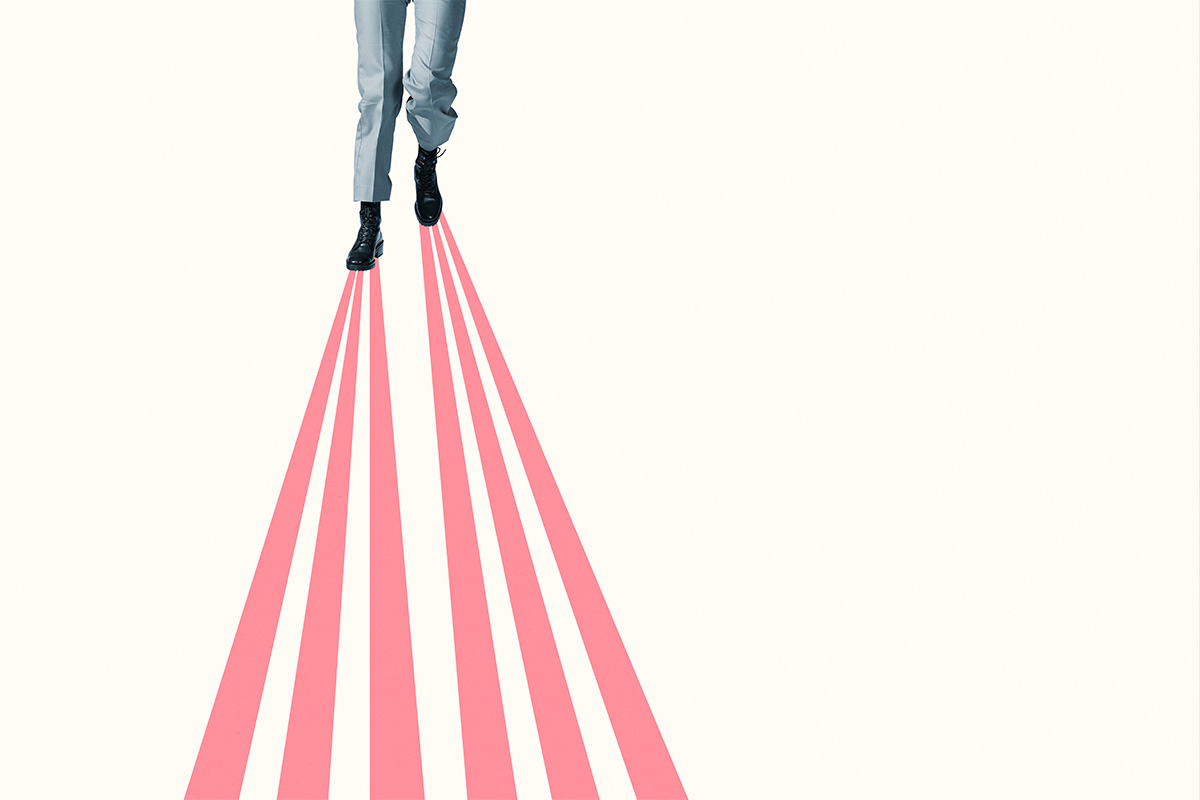Over COVID quarantine, some people tried writing books or learning languages or baking sourdough. I decided to convert to Judaism, embarking on a year of intense self-reflection and Jewish education. Why? Well, why not.
OK, there’s a little more to it than that. My journey to Judaism has been life-long. In college, I took every Jewish studies class offered. From history to language to philosophy, political science, literature — you name it, I took it. My senior thesis was even about Jewish women, memoir and the graphic novel.
Being intellectually prepared, I walked into this journey with a kind of attitude that I was merely committing to the formality of joining the Jewish people. I knew everything I needed to know about the five books of Moses and all of the holidays. But obviously, God had other plans for me. Nobody prepares you for the spiritual transformation that takes place over the course of a year of formal conversion.
Even before I formally embarked on the conversion process, I was given every reason not to join the tribe. After years of studying Jewish history, I knew that history has not been favorable to the Jews. Yet, I got defensive every time someone tried to discourage me from converting. Was I not learned enough to make that decision for myself? Surely four years in college was enough time to really think about it. I walked into the conversion process knowing I wanted to be Jewish, already feeling Jewish, and thinking this was merely a formality. Now, I look back on myself a year ago and think about how I had the chutzpah that only a gentile could have.
Gradually, as the world began to see me and treat me as a Jew, I saw it. The confusion that my friends and others had. Why would anyone willingly opt into this? Being Jewish is hard. It is a people who are constantly being threatened by extermination, with a history that reaches deeper into time than most of us could ever process. There are easier ways to feel spiritually fulfilled that do not require you to sign yourself or your progeny up for oppression.
And yet, there I was, and here I am, joining the tribe willingly.
And just as I began seeing the world from a Jewish perspective, the world began viewing me as a Jew. I have experienced all of the things that made people question why I would ever choose to convert in the first place: someone telling me the Jews were responsible for killing Jesus, having to explain the actions of Israel, and as of last month, a neo-Nazi group dropping an antisemitic banner over the freeway a few miles away from where I work. Baby’s first public bout of antisemitic violence! I guess I am now authentically a Jew more than any mikveh could ever make me.
Going into this process, I thought I knew everything about coming out and finding myself. I had already come out once before: announcing I was gay my freshman year of college. My mom wasn’t surprised; she said she’d already known for a while. Coming out, for me, was about aligning how other people viewed me with how I viewed myself. It was about me taking ownership of my identity and accepting what I always knew to be true. My body and my brain lined up for the first time in my life.
Converting to Judaism feels like much of the same thing. The term “Jew by choice” is meant to empower converts, but the way that I view it, I had no more choice in accepting this identity than I did accepting my queer one. I am a Jew by neshama, by soul, by God, by birth.
I know that I am fully Jewish and that I have reached the final stage of my conversion because if a potential convert came up to me, I would look at them like they were crazy and respond with the exact same response as one my friends gave me 18 months ago: Are you sure you want to do that? And yet, they would probably look back at me with the same amount of gentile chutzpah I exhibited back then and commence the process of aligning their identities with their souls, as our people have done since Ruth, the first overconfident gentile, joined the tribe by refusing to leave Naomi’s side.
If there is anything that I have learned in the past year, it is that there is always a Jewish precedent. I am, you are, never the first person to have thought or experienced something. To be a Jew is to acknowledge that we are a continuation of history. To be humble in our journeys because Moses probably thought what you’re thinking right now. To know for a fact that I will never be alone, but always be bound to the people Israel. Like I have been all along.



